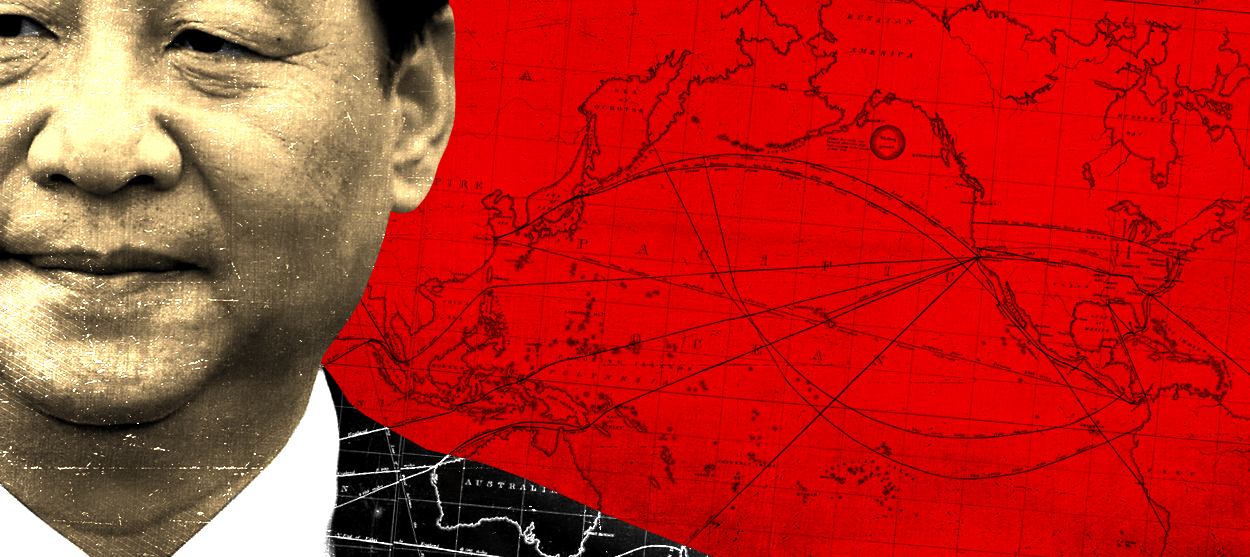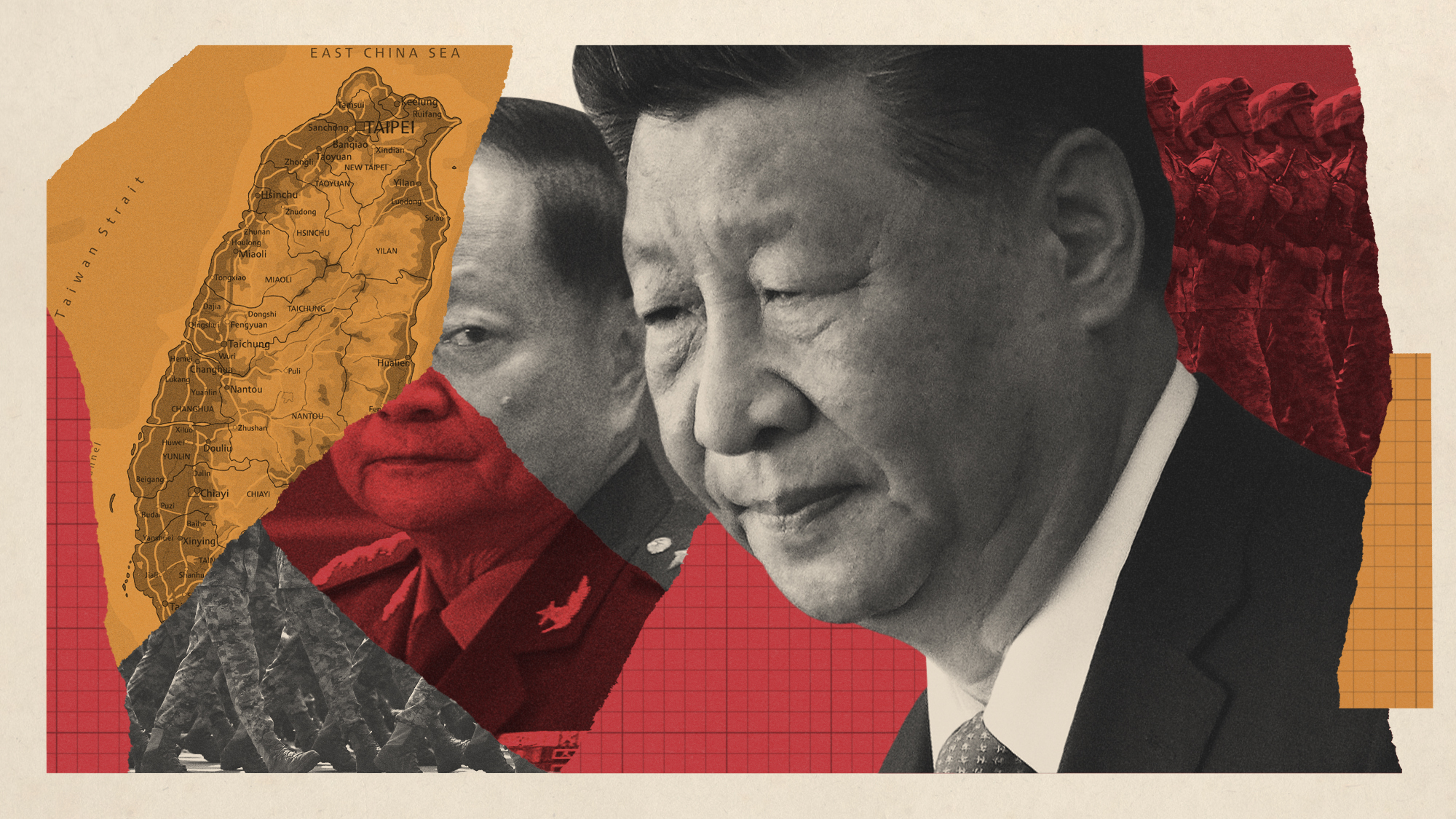America is already losing the new cold war with China
The conflict is inevitable — and morally necessary — but are we even capable of fighting it?


A free daily email with the biggest news stories of the day – and the best features from TheWeek.com
You are now subscribed
Your newsletter sign-up was successful
The relevant question about the prospect of a new Cold War between the United States and China is not whether it is likely to happen but whether the U.S. has both the internal cohesion and the diplomatic acumen to wage it successfully. Defeating the genocidal tyrants in Beijing will require our politicians to have the same shared commitments and assumptions that made it possible for us to pursue an essentially unchanging containment strategy against the Soviet Union for four and a half decades, despite changes in administration and a cultural revolution in the 1960s.
There are good reasons to be pessimistic. In the United States it is impossible for a president to consider even the most basic steps in the direction of remaking our trade relations with an adversary that destroyed our industrial capacity amid almost zero resistance — the honorable stands made in the 1990s by organized labor and Pat Buchanan will be footnotes in the history of our decline. The Band-Aid measures proposed by President Trump, which represent about one percent of what will have to happen if the U.S. is to recover its textile, pharmaceutical, and heavy manufacturing capabilities, were widely dismissed as a "trade war" by China Respecter Man. Even if we assume, on the basis of no evidence, that the American people are theoretically willing to alter their consumption habits such that an unlimited supply of Chinese plastic junk is no longer essential to their daily lives, we would still face a journalistic, academic, professional, cultural, and political elite who will serve Beijing's interests.
All of our energy in this country is internal. The great racial tragedy of our age is not the genocide being carried out against Uighur Muslims in West China but the continued existence of beloved syrup and football mascots. The villains are not the pusillanimous collaborators at Disney and the NBA, but American senators who dare to suggest that the lives of people in Hong Kong matter more than box office receipts and profits from exhibition games and the sale of merchandise in a country in whose law the concept of racial discrimination does not even exist. On the one hand, China is literally enslaving the people of Eritrea as I write this; on the other hand, the bad orange man over here said "kung flu." Only one of these countries' leaders is generally represented in domestic media as an authoritarian monster.
The Week
Escape your echo chamber. Get the facts behind the news, plus analysis from multiple perspectives.

Sign up for The Week's Free Newsletters
From our morning news briefing to a weekly Good News Newsletter, get the best of The Week delivered directly to your inbox.
From our morning news briefing to a weekly Good News Newsletter, get the best of The Week delivered directly to your inbox.
China's leaders understand the American propensity to make every crisis an empty exercise in tone-policing. They know how to exploit our genuinely human impulses, which they not only do not share but reject as the height of folly. They also recognize that vast swathes of our political and educational establishment accept ideological commitments such as free trade that happen to benefit China as if they were undeniable scientific conclusions about the necessary conditions for decent human life.
Our internal divisions do not bode well for collaboration with our allies, which will be just as necessary against China as it was against the Soviet Union. Why should we expect our NATO partners to reject Chinese infrastructure investment when a common-sense bill like the one introduced by Sen. Tom Cotton to return pharmaceutical production to these shores in the name of national security, health, and the economy, is greeted with indifference? While it is heartening to see the United Kingdom ban Huawei from its 5G infrastructure, Britain is one willfully self-isolated country in Western Europe. Elsewhere on the continent it is unclear whether the United States continues to have enough influence over Germany, the de facto seat of power in the European Union, to prevent yet another massive incursion of Chinese influence via the rollout of the new technology.
This is to say nothing of the Houdini-like escape act China has carried out in the last seven months, when it briefly appeared as if we might be willing to hold Beijing to account for its blatant cover-up of the emergence of COVID-19. Instead, just as it did in the immediate post-Cold War era of globalization, when it appealed successfully to corporate venality, academic delusions, and a shallow conception of human dignity in order to capture Western markets, China has managed to exploit the recent pandemic. Among other things, Beijing managed to pit the World Health Organization, which it all but controls, against the president whose first response was to propose a travel ban that was widely dismissed as xenophobic overreaction. While Beijing marshaled all the awesome power of its surveillance state against the illness, we argued about whether we were hurting the feelings of the world's most vicious and repressive regime by blaming them for lying about whether this disease could even be transmitted by human beings.
There will be more crises like the present one in the decades to come, as China expands its influence in sub-Saharan Africa, Latin America, the Gulf States, and beyond. I do not expect more favorable outcomes.
A free daily email with the biggest news stories of the day – and the best features from TheWeek.com
Matthew Walther is a national correspondent at The Week. His work has also appeared in First Things, The Spectator of London, The Catholic Herald, National Review, and other publications. He is currently writing a biography of the Rev. Montague Summers. He is also a Robert Novak Journalism Fellow.
-
 6 of the world’s most accessible destinations
6 of the world’s most accessible destinationsThe Week Recommends Experience all of Berlin, Singapore and Sydney
-
 How the FCC’s ‘equal time’ rule works
How the FCC’s ‘equal time’ rule worksIn the Spotlight The law is at the heart of the Colbert-CBS conflict
-
 What is the endgame in the DHS shutdown?
What is the endgame in the DHS shutdown?Today’s Big Question Democrats want to rein in ICE’s immigration crackdown
-
 The UK expands its Hong Kong visa scheme
The UK expands its Hong Kong visa schemeThe Explainer Around 26,000 additional arrivals expected in the UK as government widens eligibility in response to crackdown on rights in former colony
-
 ‘Hong Kong is stable because it has been muzzled’
‘Hong Kong is stable because it has been muzzled’Instant Opinion Opinion, comment and editorials of the day
-
 What do Xi’s military purges mean for Taiwan?
What do Xi’s military purges mean for Taiwan?Today’s Big Question Analysts say China’s leader is still focused on reunification
-
 What is at stake for Starmer in China?
What is at stake for Starmer in China?Today’s Big Question The British PM will have to ‘play it tough’ to achieve ‘substantive’ outcomes, while China looks to draw Britain away from US influence
-
 ‘It’s good for the animals, their humans — and the veterinarians themselves’
‘It’s good for the animals, their humans — and the veterinarians themselves’Instant Opinion Opinion, comment and editorials of the day
-
 The billionaires’ wealth tax: a catastrophe for California?
The billionaires’ wealth tax: a catastrophe for California?Talking Point Peter Thiel and Larry Page preparing to change state residency
-
 What is China doing in Latin America?
What is China doing in Latin America?Today’s Big Question Beijing offers itself as an alternative to US dominance
-
 Bari Weiss’ ‘60 Minutes’ scandal is about more than one report
Bari Weiss’ ‘60 Minutes’ scandal is about more than one reportIN THE SPOTLIGHT By blocking an approved segment on a controversial prison holding US deportees in El Salvador, the editor-in-chief of CBS News has become the main story
